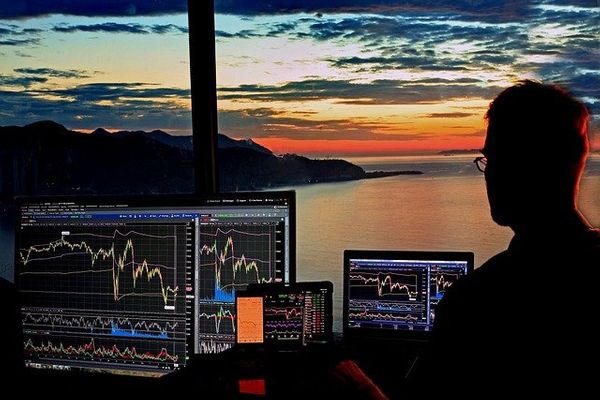The UK is finally starting to see some positive signs of recovery from the coronavirus pandemic, thanks to the successful rollout of vaccination programmes and increased immunity. The economy has also started to recover from the effects of enforced, recurrent lockdowns.
In an attempt to improve economic health further, many nations have seen inflation rates soar. Inflation is the rate at which prices are rising and the UK in particular, has been one of the worst affected countries, recording a 30 year high, with interest rates rising to 5.4% in one year.
As a result of high inflation rates, living costs have risen to an obscene level, causing many households to struggle. Since the foreign exchange (forex) market and the health of the world’s economies are primarily linked, you might be wondering how rising living costs and inflation could affect your trades.
In this article, we’ll explore how forex has been influenced, to help you to understand how you can best navigate this uncertain economic period.
The connection between the world’s economies and forex
The health of the world’s economy is one of the primary contributors to price fluctuations in the forex market. The healthier a nation’s economy, the more likely they are to attract foreign investment —which will in turn, support their exchange rate.
When you invest in the forex market, you’ll be trading on the value of the world’s currencies, and you’ll need to understand what is forex and how it is traded. You can invest in currencies through currency pairs, and these are displayed in the market using their International Organisation for Standardisation (ISO) code.
For example, the Euro against the Dollar would appear as EUR/USD. Since currencies are traded in this way, deterioration or improvement of either country’s economic state will affect the pair’s market price.
Because of the volatility of the market, and the fact that it is so closely affected by macroeconomic factors, it is essential that you do your research, and use fundamental and technical data to inform your decisions in the market.
Rising living costs and forex
Living costs have risen in many countries, particularly in the UK, where households are having to deal with price rises in many areas. The main reason for increased living costs is the rising price of energy worldwide. The energy sector was drastically affected by the coronavirus pandemic, as enforced lockdowns and lack of travel, meant that energy consumption dropped considerably.
The world is now returning to some normality, meaning the demand for energy has risen exponentially from the levels it experienced back in 2020. Rising energy prices mean that individuals are having to pay more to fuel their cars and heat their homes and this, combined with rising prices across other sectors, has caused overall living costs to soar.
Higher living costs mean that households are spending more on their everyday essential outgoings and therefore, have less surplus capital to spend on other goods, which can weaken the economy.
A weaker economy means a weaker currency and therefore, when living costs rise, the forex market can experience increased levels of volatility.
How are countries dealing with inflation?
In order to curb inflation, the world’s nations are having to increase interest rates. This, in the short term, will make it more expensive to borrow money, meaning the consumer has less capital to spend.
As a result, individuals will be prompted to save their money, since there will be greater benefits in doing so. Higher interest rates will cause economic traction to decrease, in turn, lowering the rate of inflation.
Higher interest rates can have a positive effect on the value of a nation’s currency since this will attract greater foreign investment. This will also affect the value of your investment in the forex market if this involves the currency pair in which you have a position.
—
As a forex trader, there are a variety of economic factors that can affect your trade. These can include:
- Inflation and interest rates (as discussed)
- Employment rates
- Gross domestic product (GDP)
The rates of these factors are typically adjusted periodically, which means you can employ an economic calendar, and plan ahead for upcoming data releases that could affect your trade.
By doing your research and having a well-conceived strategy, you can increase the chance of making gains on your position in the forex market, minimizing the risk of making losses.


